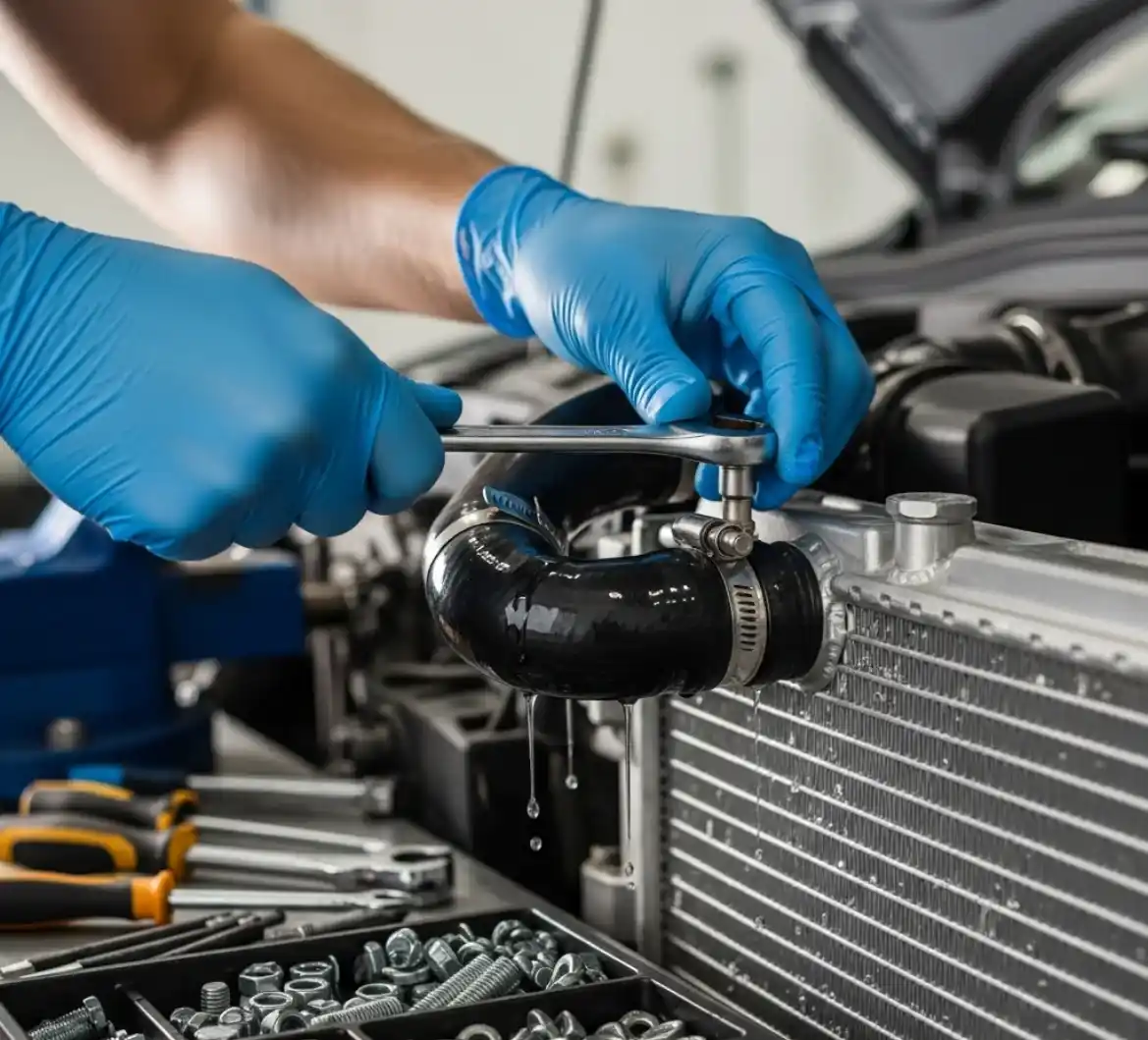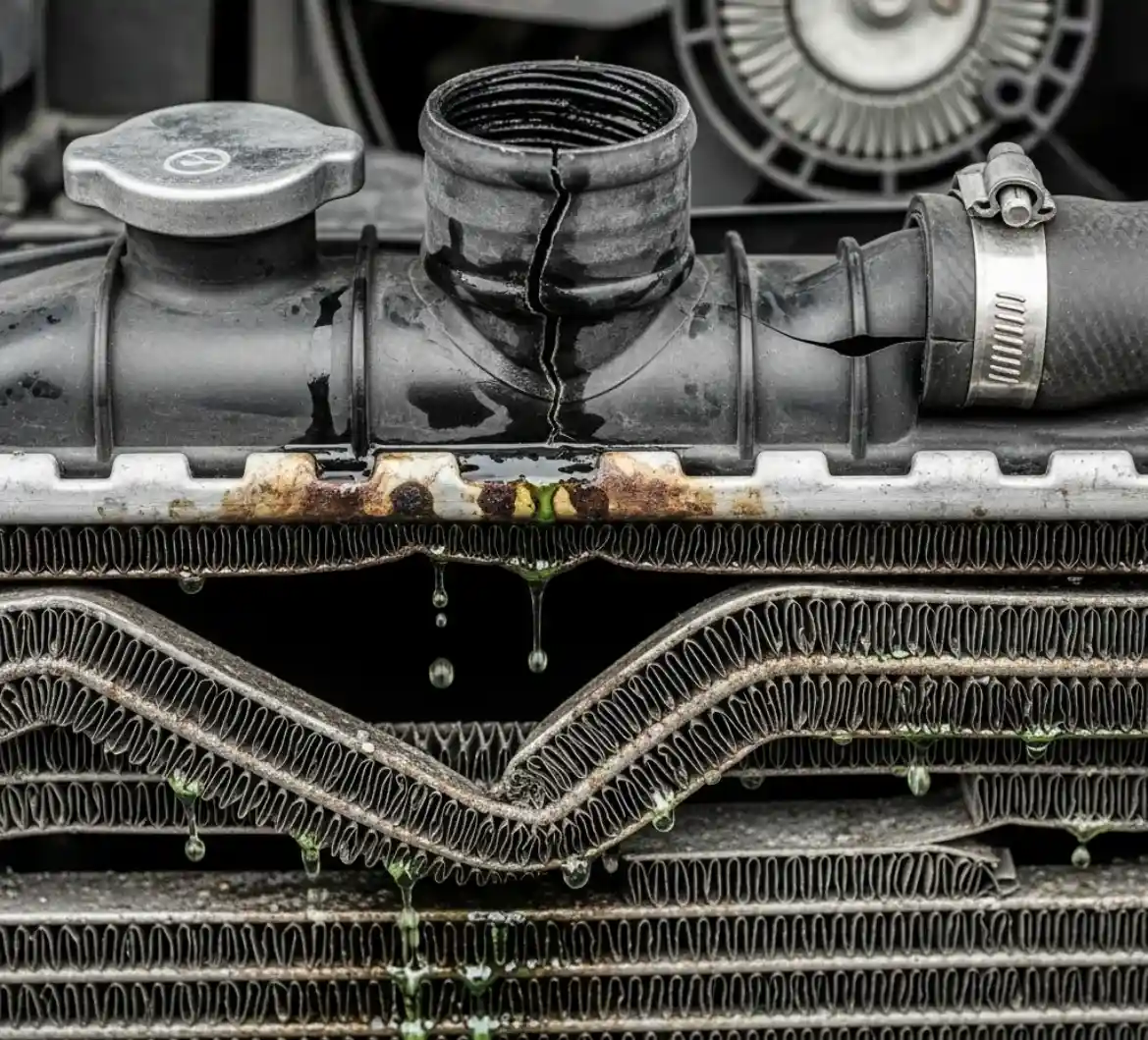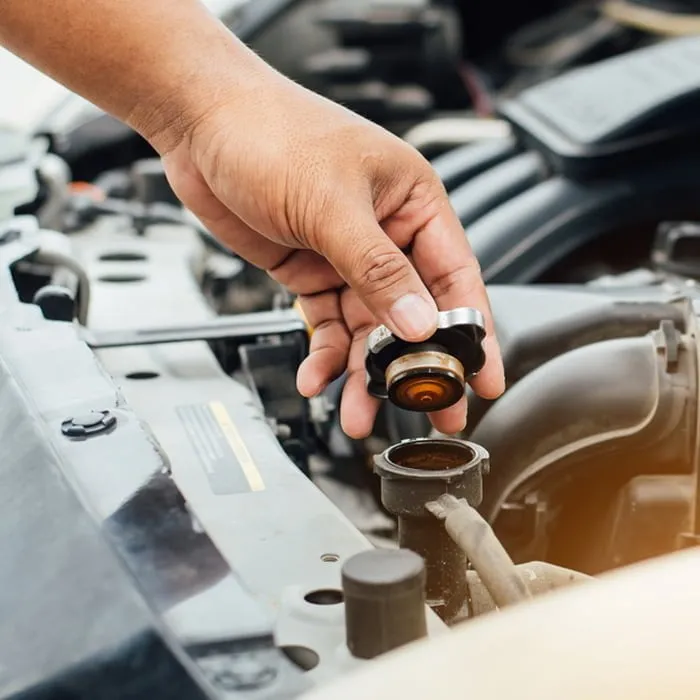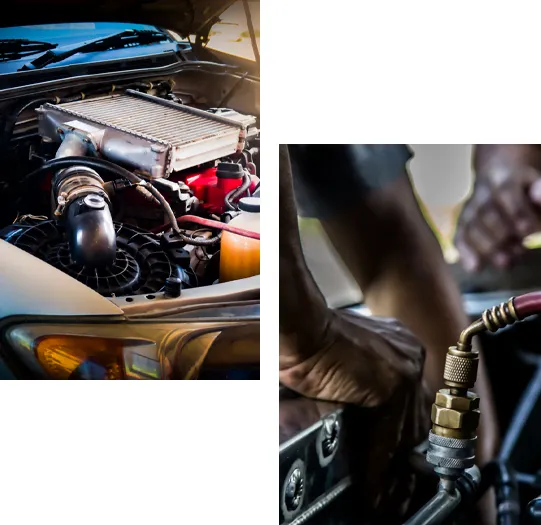Car Radiator Repair — EAC Poway
Keep your engine cool and your drive worry-free with professional Car Radiator Repair from EAC Poway. Suppose you live in Poway, Rancho Bernardo, or anywhere in North San Diego County. In that case, we’re the local choice when you search for radiator repair San Diego, auto radiator repair San Diego, or radiator repair shop San Diego. Our certified technicians diagnose coolant system problems quickly and fix them the right way so your car runs cooler and lasts longer.
WhatsApp
Call Now
[hfe_template id=’142′] 
Why the radiator matters
The radiator is the heart of your car’s cooling system. It moves heat away from the engine so metal parts don’t overheat. Most passenger cars hold about 6–15 quarts (6–14 litres) of coolant depending on size and model. If the radiator fails, engines can overheat quickly and suffer expensive damage like warped heads or seized engines. Replacing a damaged radiator early can save thousands in engine repair bills.
Typical life span for a radiator varies, but many last 6–10 years under normal driving. Corrosion, coolant contamination, road salt, and physical damage shorten that life. Regular checks and coolant changes keep the system healthy and help you avoid roadside breakdowns.
[hfe_template id=’160′]
Common radiator problems we fix
At EAC Poway, we repair the full range of radiator and coolant system issues:
- Leaks from radiator cores or tanks. Small pinhole leaks often grow quickly.
- Cracked plastic end tanks. Many modern radiators use plastic tanks that can crack with age.
- Clogged passages and scale. Old or mixed coolant can leave deposits that block flow.
- Failed radiator cap or hoses. A bad cap or brittle hose causes pressure loss and leaks.
- Faulty cooling fans or thermostats. These cause poor coolant circulation and overheating.
- Corroded or damaged fins and tubes. Road debris and corrosion reduce cooling efficiency.
[hfe_template id=’160′] 
How we diagnose radiator issues
We use a clear, step-by-step approach so you know what’s wrong and why:
- Visual check. We inspect hoses, clamps, and tanks for obvious damage.
- Cooling-system pressure test. This pressurises the system to reveal hidden leaks.
- Thermostat and fan check. We confirm the thermostat opens and the electric/mechanical fan runs.
- Coolant analysis. We look for contamination, rust, or incorrect coolant type.
- Flow testing. If needed, we check for flow restrictions or blockages.
After diagnosis, you receive a written estimate. We explain repair options: patch, hose replacement, or full radiator replacement. We never push unnecessary work.
Repair vs. replacement – real numbers
Costs depend on vehicle make and model. Here are typical ranges you can expect in the San Diego area:
- Small leak repair or hose clamp replacement: often $80–$200.
- Radiator repair (minor solder/weld, simple patch): often $100–$300.
- Radiator replacement (parts + labour): commonly $400–$1,200 depending on whether the radiator is OEM or aftermarket and on labour time.
- Complete cooling system service (flush, new coolant, hoses, cap): usually $150–$350.
These are typical ranges and can vary by vehicle (sports cars and luxury imports cost more). When a radiator is badly corroded or the plastic end tanks are cracked, replacement is usually the safer long-term choice. EAC Poway provides transparent pricing and explains warranty coverage for parts and labour.
Radiator replacement & installation services
When replacement is best, we handle the whole job:
- Remove old radiator, hoses, and clamps.
- Inspect and replace hoses, thermostat, and radiator cap if needed.
- Install a quality OEM or OEM-equivalent radiator matched to your vehicle.
- Fill with manufacturer-specified coolant and perform a complete bleed to remove air pockets.
- Road-test to confirm proper temperature and no leaks.
We follow factory specifications to protect your engine and maintain any manufacturer’s warranty. Our work includes a final verification that your vehicle meets emissions and performance expectations.
Cooling system maintenance – simple steps to avoid trouble
Regular maintenance prevents many radiator problems. We recommend:
- Coolant change interval: follow your owner’s manual — commonly every 2–5 years or 30,000–50,000 miles for modern coolants.
- Visual checks every oil change: inspect hoses and clamps for wear or soft spots.
- Watch for warning signs: dashboard temperature spikes, puddles under the car, sweet-smelling steam/fumes, or low coolant levels.
- Use the right coolant: mixing incompatible coolants can cause scale and corrosion.
At EAC Poway, we offer coolant flushes and system inspections. Keeping coolant fresh and the system clean helps radiators last longer — and helps your engine avoid expensive repairs.
Related services we often perform with radiator work
Radiator or cooling system problems can be linked to other systems. We commonly combine services for a full fix:
- Car Engine Repair — Overheating that’s left too long can damage the engine; we diagnose and repair engine issues found during coolant problems.
- Car Oil Change — Fresh oil helps cool engine internals and is often done after overheating repairs.
- Car AC Repair — Cooling system problems and AC issues sometimes appear together, especially after heat-related stress.
Linking these services helps you get a complete picture of vehicle health and avoid repeat visits.
Why choose EAC Poway for radiator repair in Poway & San Diego
- Local & convenient: We are based near Poway Town Centre, and we serve Poway, Rancho Bernardo, Rancho Peñasquitos, and greater San Diego.
- ASE-certified technicians: Skilled techs follow manufacturer procedures for accurate diagnosis and repair.
- Modern testing gear: We use pressure testers, electronic scanners, and coolant analysers to find hidden problems.
- Transparent estimates: You get a written estimate before any work starts — no surprise fees.
- Quality parts & warranty: We use OEM or high-quality aftermarket radiators and back our work with parts and labour warranties.
- Fast turnaround: Many radiator repairs and coolant services are completed the same day.
When people search “radiator repair San Diego CA” or “radiator repair shops San Diego,” they want a shop that’s local, honest, and technically strong. That’s EAC Poway.
[hfe_template id=’160′] 

What to do if your car overheats right now
If your temperature gauge rises or steam appears:
- Pull over safely. Turn off the engine — running it can cause severe damage.
- Wait for the engine to cool. Do not open the coolant reservoir or radiator cap while hot.
- Check the coolant level once cool. If low, add coolant or water temporarily to get to a safe location.
- Call our shop or a tow service if you can’t safely drive. Continuing to drive can cause permanent engine damage.
EAC Poway offers prompt radiator inspections and emergency assistance to keep you safe.
[hfe_template id=’160′]
Ready for a cooler drive?
If you suspect a leak, notice temperature spikes, or your heater isn’t working right, don’t wait. Book a radiator inspection with EAC Poway today. We’ll provide a clear diagnosis, a fair estimate, and the right repair to get you back on Poway roads with confidence.
Call us now or schedule online for fast radiator repair and cooling-system service. Keep your engine cool, your trips safe, and your costs lower with timely care from your neighbourhood radiator experts.
FAQs
How long does a radiator repair take?
Minor repairs or hose replacements can be done the same day. Full radiator replacements often take 2–4 hours, depending on vehicle complexity.
Can you repair a plastic-tank radiator?
Small repairs sometimes work, but cracked plastic tanks usually need full replacement for long-term reliability.
Do you flush the cooling system after replacement?
Yes. We flush and fill with the proper coolant and follow a bleed procedure to remove trapped air.
How can I avoid radiator problems?
Regular coolant changes, hose inspections at oil changes, and watching for leaks or temperature changes prevent most issues.